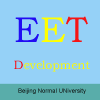-
Mentoring
普通类 -
- 支持
- 批判
- 提问
- 解释
- 补充
- 删除
-
-
Mentoring
MENTORING AS A NON-TRAINING INTERVENTION has grown rapidly in the last twenty years. From teacher education to aerospace, from financial firms to community foundations, mentoring relationships are widse spread, and have a variety of purposes. However, to create and implement a successful mentoring program, one must understand the true definition of mentoring, its critical elements, and its role within the overall performance system.-
Traditional vs. Contemporary View
When the term mentor is used, an image of older, wiser individuals leading around young proteges and passing down age-old secrets comes to mind. In fact, the principals of mentoring and modeling have been around since ancient times (Murray and Owen, 1991).
The old view on mentoring was a one-way flow of knowledge, while the new view includes a two-way exchange of ideas.
As organizations flatten, the definition needs to reflect the change in the organizational structure and culture. Instead, the mentoring process should be viewed as a two-way exchange of information, tapping into both individuals’ abilities to learn. In companies moving towards self-directed and cross-functional teams, mentoring should be employed for a greater variety of individuals, and linked to performance-based competencies (Van Slyke and Van Slyke, 1998).
Occasionally, the term "coaching" is used to describe a mentoring relationship as defined above. Leslie Rae (1994), makes the fine distinction between these two terms by stating that mentoring is "the supportive development of an individual employee through the use of an experienced person" while coaching implies "taking work situations and turning them into learning opportunities." Coaching, she further adds, involves a manager or supervisor with a subordinate while mentoring puts both individuals on the same level.-
Key Elements of a Successful Program
Typically, mentoring as an intervention is considered when either a skills/knowledge or a motivation issue is the driving force in the performance problem or opportunity (Rossett, 1999). Mentoring obviously needs individuals who are committed to the relationship for it to work (Bell, 2000; Rae, 1994). Mentoring needs a supportive environment, and a goal that the relationship is striving to achieve if it is to enhance performance.
.gif)
Mentoring depends on the right conditions within the organization.
A well-placed and well-defined mentoring program can meet these challenges and transform an organization into a "learning community" (Murray, 1999). As Margo Murray and Marna Owen (1991) point out, it is necessary to gather baseline before setting up the mentoring program for evaluation purposes.-
Yeah, But Does It Work?
Richard Henley (1999), a senior healthcare financial manager, has found that mentors "can provide the challenges and support that engage talented proteges, increasing their job satisfaction and work effectiveness in the process." By doing this, Henley feels that mentors help to "raise the performance bar" in their profession while gaining new insights from a different viewpoint.
Many multicultural businesses are realizing that telling employees they "oughta wanna" like others from different cultures isn’t working. Instead, these firms have found that through structured mentoring programs that pair individuals cross-culturally, a greater interest and understanding between cultures develops. This in turn raises the level of communication between people groups and diminishes break down in productivity (Murray, 1999; Fox, Bryne, and Rouault, 1999).-
More Information
Margo Murray is a nationally recognized expert on mentoring, and she is the president of MMHA The Manager’s Mentors, Inc. Their web site is http://www.mentors-mmha.com/main.html.
The International Society for Performance Improvement (ISPI) has a journal they publish monthly, which contains articles dealing with performance problems and solutions, such as mentoring (visit http://www.ispi.org for more details).
Finally, the book Beyond the Myths and Magic of Mentoring: How to Facilitate an Effective Mentoring Program is an excellent resource for anyone setting up a mentoring program. It details pre- and post-assessment materials and ideas.-
Author
Holly M. Hull, M.A.
-
-
- 标签:
- performance
- murray
- mentoring
- individuals
- 1999
-
加入的知识群:



学习元评论 (0条)
聪明如你,不妨在这 发表你的看法与心得 ~